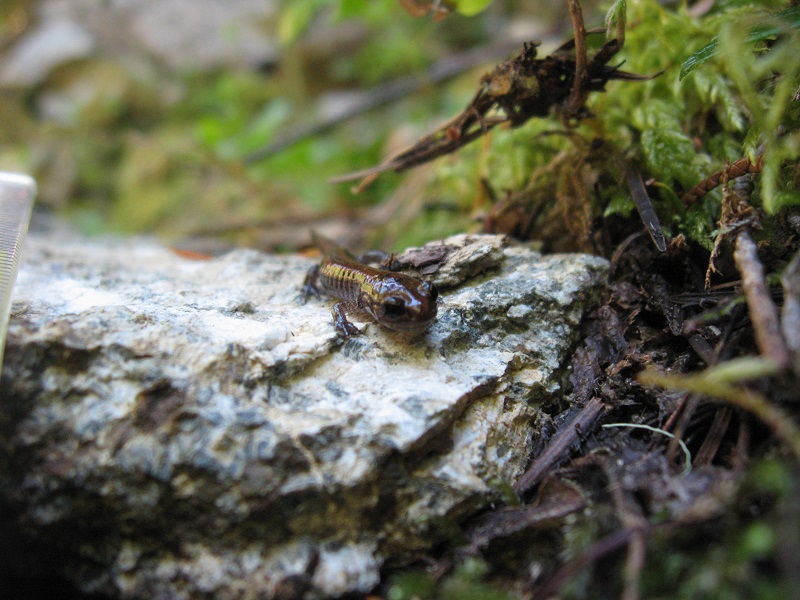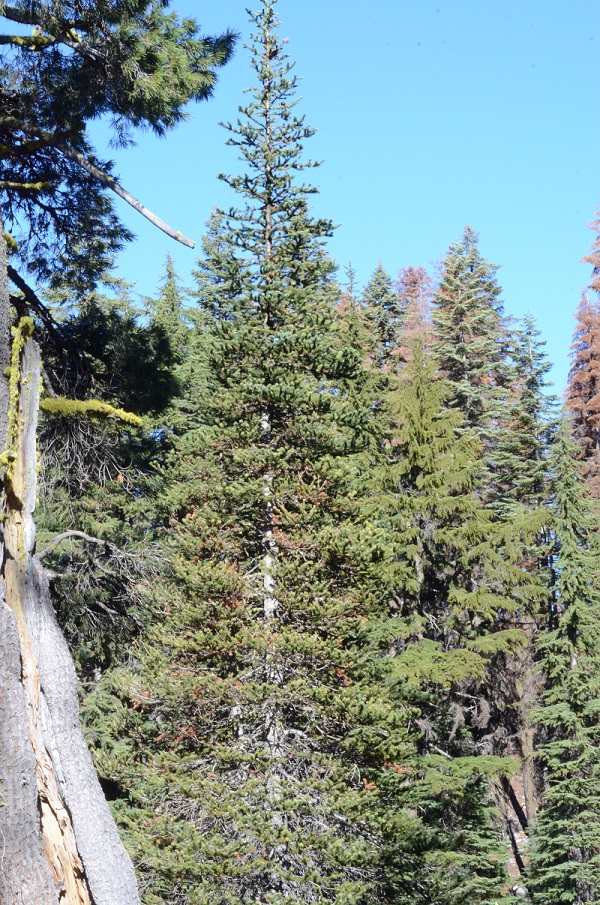Days are getting shorter, temperatures are getting cooler, and rain is starting to fall. These changes are welcomed by many species that thrive in this wetter, chillier weather. We encourage all of you to get outside, enjoy this changing weather, and see these great plants and animals for yourself! Here are our favorite photos submitted through the online field survey form during November:

Plethodon elongatus – Del Norte salamander
Submitted by Mark Raggon of the United States Forest Service
Mark snapped a close-up of this juvenile Del Norte salamander, a California Species of Special Concern, near the California Oregon border in Del Norte county. This species inhabits the very northwestern portion of the state in Del Norte, Siskiyou, Humboldt, and Trinity counties. Del Norte salamanders are lungless salamanders, so they breathe through their skin and tissues surrounding their mouths! Because of this unique way of respiration, they must live in wet terrestrial environments and remain mostly inactive during hotter months. Little activity combined with short limbs make for a fairly sedentary lifestyle. Studies have shown that the Del Norte salamander stays within a 7.5 square meter area within a year. This is only about a 24-foot square! Populations of this species are sensitive, yet stable even though logging is a cause of habitat loss and disturbance. Thank you, Mark, for the great picture of this neat species!

Abies lasiocarpa var. lasiocarpa – subalpine fir
Submitted by Dana York
This evergreen tree was found by Dana while hiking along a portion of the Pacific Crest Trail in Siskiyou County. It is listed as a 2B.3 (Rare or Endangered in California but common elsewhere; not very threatened in California) in the California Rare Plant Ranking system. In California, Abies lasiocarpa var. lasiocarpa is restricted to meadows and subalpine coniferous forests in Siskiyou County. Like many firs, A. lasiocarpa var. lasiocarpa creates cones that are wind pollinated, often in early summer. Once fully mature these cones begin to fall apart releasing winged seeds dispersing with help from the wind. Thank you, Dana, for sharing this amazing find from your hike!